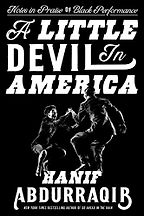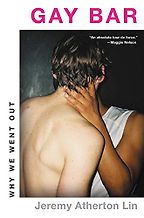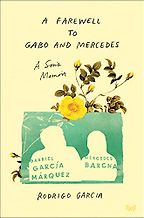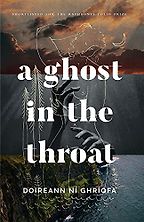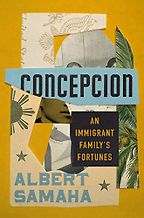What an exciting shortlist for this year’s National Book Critics Circle autobiography award category. As the chair of the judges, can you give us an overview—what does autobiography and memoir look like in 2022?
‘Autobiography’ is a pretty old-fashioned word for this category. I think it’s closer to what people now call ‘creative nonfiction’. Just like last year, we read far fewer traditional autobiographies than books that combine memoir with journalism, cultural criticism, history, even poetry. As we move through the shortlist, you’ll see.
Fluidity of genre is a trend that we have seen in the prizewinners for several years now. Last year, the winner was a blend of memoir and cultural criticism—Minor Feelings by Cathy Park Hong—and this year we have books along those lines, as well as books that go in other directions.
Yes, I think ‘a blend of memoir and cultural criticism’ is probably a reasonable way of describing the first book that made the shortlist. This is Hanif Abdurraqib’s A Little Devil in America: Notes In Praise Of Black Performance.
I think I can reveal that this book was considered by more than one committee at the NBCC, because—yes—it is as much cultural criticism as it is autobiography. One of the things that’s important to us is not to let books like that fall through the cracks. We might say, well, it’s not really a memoir, and they might say, well, it’s not really criticism. So we’ve made it our job to embrace those hybrid books. I mean, there was almost a little turf war over this one.
Abdurraqib’s voice is so powerful and personal that even when he’s writing about Whitney Houston or Michael Jackson, it still reads as personal storytelling. It’s certainly not what we ordinarily think of as music criticism. His discussion of each entertainer is very much in terms of his culture and life story.
There was one essay that the committee went crazy for: ‘It Is Safe to Say I Have Lost Many Games of Spades.’ It’s about playing cards in a van with a group of other writers traveling to an event down South. It’s about the different rules and traditions for the game in black communities all over the country. It’s also about friendship. He says that the way each of his friends plays Spades brings out the thing he most loves about each of them. That’s a lovely piece of memoir right there.
Get the weekly Five Books newsletter
As both a writer and reader of this genre, I’m obsessed with interesting formal constraints and decisions about language. Abdurraqib is a poet, and brings a lyricism and often a sort of incantatory style to his writing. One essay is based on a kind of poem called a ‘crown of sonnets’, where the last line of each sonnet becomes the first line of the next one. He did that with sections of an essay about Mike Tyson. That enchanted me. He also has five essays with the same title: ‘On Times I Have Forced Myself to Dance.’ And ‘Sixteen Ways of Looking at Blackface’ clearly gets its spinal column from Wallace Stevens.
If you want to know what you’ll come away with from this book, it’s less that you’ll have a new way of thinking about Beyoncé or Don Shirley (though you very likely will know a lot more about Don Cornelius, the host of Soul Train, than you did before!), it’s more about the writer than the cultural subjects, which is what makes it an autobiography.
That makes sense. The second shortlisted title is Jeremy Atherton Lin’s Gay Bar: Why We Went Out. It’s described as “a transatlantic tour of the hangouts that marked his life, with each club, pub and dive revealing itself as a palimpsest of queer history.” What did you admire about this book?
Oh, it’s really good. First of all, it’s very brave and candid. It has a lot of raw sex writing in it, which is attention-grabbing and very well handled. It’s a love story, really; he describes how he met his partner, whom he calls ‘Famous Blue Raincoat’ or just ‘Famous’, in a bar when they were really very young. It’s the story of him and Famous, their coming of age, and their sex life over decades, threaded all through the book. So it’s the furthest thing from a dry history of gay bars. It’s very experiential, and takes you inside gay culture in a rare way. He evokes the settings so powerfully. It’s a great way of telling history.
Do you remember the Alia Volz book we talked about last year, Home Baked? About her mother selling hash brownies in San Francisco?
Yes!
So the cities featured in this book, London, Los Angeles and San Francisco, come to life in a similar way as in that book. You feel there’s a really vivid capturing of those cultural centers at certain times in their history.
The author came of age in the 1990s, but Aids plays a smaller role in the book than I might have expected or feared. It’s put in its place by all that’s happened before and since. It’s put in a historical context, and that’s kind of liberating I think
I know when people are selling nonfiction books at the moment, publishers often want a personal link to the story. I suppose this is where the trend towards genre fluidity might come in, and I guess it also reflects the way that so-called ‘lived experience’ is increasingly respected and prioritised.
Jeremy Atherton Lin started out a blogger; he blogged about gay bars and his experiences in them. So his project kind of morphed from an online diary into this book. It contains substantial research about the story of each bar, the evolution of the cities and the neighbourhoods. But if someone else had written it, it might have been very different. It could have gone down the road of urban development and architecture. It could have been a history of homophobia, or a ‘discourse’ about liminal spaces and such. It has those angles, those vocabularies, and others, but it’s all enlivened by Lin’s persona and his experiences. I mean, they are quite in-your-face experiences.
Thanks. The third book is Rodrigo García’s A Farewell To Gabo And Mercedes: A Son’s Memoir. Rodrigo Garcia is Gabriel García Márquez’s son; this is a short but well-formed memoir about the deaths of his parents.
We talked a lot about two aspects of this book. First: is it a handicap that it’s so short? Or is it beautifully compressed, and perfect at this length? Obviously we decided it was the latter. We also talked about whether this book is important because his father was so famous—is that why we liked it?—or was it because it captured something universal about losing both parents? Again, we decided the latter, though Garcia does honor the loss to the world and to his father’s many fans, as well as his own.
It’s a intimate, straightforwardly written narrative of the weeks surrounding a death, a document of grief. And, yeah, it’s interesting to see inside the world of Gabriel García Márquez, but this book is not like most books by the children of celebrities. For one thing, they rarely take this elegiac tone. We’ve read a lot of books that are more like exposes, revealing difficulties and resentment. You can tell from this book that it wasn’t always the perfect family—Gabriel García Márquez was revered during his lifetime, to the point that they were living like Hollywood celebrities, that kind of paparazzi pressure and public attention. But García’s tone is humanising, and not warts-and-all humanising, but humanising due to his filial emotions.
Next up, we have Doireann Ní Ghríofa’s A Ghost in the Throat. I do love this strange little book. It weaves the story of how she subsumes herself in early motherhood with a parallel story of an Irish noblewoman and poet. Can you tell us a bit more about it?
People really can’t decide what genre this book is in, probably more so than any of the other books. They even tried to say it was fiction! Turf war, part two! I think there’s no doubt it belongs in autobiography. Ní Ghríofa interweaves the earthbound realities of her life as a young mother with her literary obsession with an 18th-century poem. It’s quite remarkable.
She explains that she knew this poem from it being taught to her at school, and then she encountered it at a different time in her life. She had never realised before that the woman poet was a young mom at the time she was widowed; I think she says that this was the detail that pushed her over the edge into obsession. She has a xeroxed copy under her pillow that she pulls out and reads in stolen moments. She researches everything that can be known about this woman’s life (which is both more than you’d think and less than she wants), and she makes her own translation from the Irish, which is included in the book.
“‘Autobiography’ is a pretty old-fashioned word for this category. I think it’s closer to what people now call ‘creative nonfiction’”
The poem itself is almost kind of goth in its details. She drinks her dead husband’s blood, she takes his dead horse’s skull and buries it in her fireplace. It’s also unbelievably romantic, quite in contrast to the diaper pails and floor-mopping and everything else she has going on. But the thing is that she embraces both. She is not downtrodden by her duties as a mother.
There’s an interesting discussion over whether this is a feminist book, because she does kind of love her dishwashing and breast-pumping and such. It has been more traditional in feminism to package up domestic duties as part of female oppression. That’s not really Ní Ghríofa’s approach at all. She finds a beauty in the duties of care. She’s a romantic in the traditional sense. She finds an intensity and romance in her own life.
It has this echoing refrain: “This is a female text.” She applies it to real texts, like the book itself and the poem that she translates, but also to other less obvious tasks. She talks about the idea of the fruits of female labour disappearing, or undoing themselves as fast as you do them—the clean becoming unclean, and so on. I felt this book very powerfully, although I find it hard to sum up the thrust of its ‘argument’.
You know how there was a turn in feminist thinking about sex? Instead of being exploited or ashamed or whatever, you could be ‘sex positive’ and proud of it. This book is, like, housework positive.
I love that. There’s a bit about how she donates her breast milk until she’s too ill to continue. She’s sapping herself dry for a baby she’s never met. It’s a very pure image of femininity as self-abnegation.
Right. That’s a great example of what I’m talking about—the extreme romance of the way she sees her own life.
Maybe that brings us to the final book on the shortlist: Albert Samaha’s Concepcion: An Immigrant Family’s Fortunes. It’s the story of the author’s Filipino-American family, and it traces his ancestry back through Filipino history.
There’s a lot we admired about this book. It’s an undertold story. Someone on the committee described it as a collective memoir, shared by unheard people from this background. In addition to the complicated history of the islands starting with Magellan, he includes several wonderful personal stories. His uncle Spanky who was literally a rock star in the Philippines became a baggage handler at the airport in California. His mother who darts in and out of the story, is a Trumper and a QAnon follower. She gets catfished by a guy from an online dating site. So all these different narrative threads energize each other, and benefit from the contrast.
Five Books interviews are expensive to produce. If you're enjoying this interview, please support us by donating a small amount.
In some ways it’s like Gay Bar, in that it is a long cultural history mixed with a personal story. And it succeeds because the writing is so personal and powerful and vivid. It’s part of a more general flowering of Filipino writers right now.
How would you characterise his literary style?
I’d say he writes in a very accomplished narrative nonfiction style—longform journalism laced with personal storytelling—including moments of high irony and humor. He’s not as lyrical as the poets Abdurraqib and Ní Ghríofa, but the task he sets himself makes that an asset. There’s a lot of actual information and education delivered by this book, more like what you’d expect from a title on the nonfiction list—and there’s that hybrid thing again, the leitmotif of this list.
Fantastic. What happens next?
So now the members of all six NBCC committees are reading all the shortlisted books from every category. Then we will meet on Zoom, and at that point it’s all about hearing the voices of the people who weren’t involved in the shortlisting process. As the chair of the autobiography committee, I’m very interested to see how the five books are going to roll with the larger group. Those final discussions are so interesting and important. The best part of being on the NBCC, really. Then we will vote on the winners, and the ceremony will be on the 17 March, preceded by a finalists reading where we will hear two minutes each of all 37 books! I’m particularly excited about that.
Interview by Cal Flyn, Deputy Editor
February 18, 2022. Updated: January 17, 2024
Five Books aims to keep its book recommendations and interviews up to date. If you are the interviewee and would like to update your choice of books (or even just what you say about them) please email us at [email protected]
